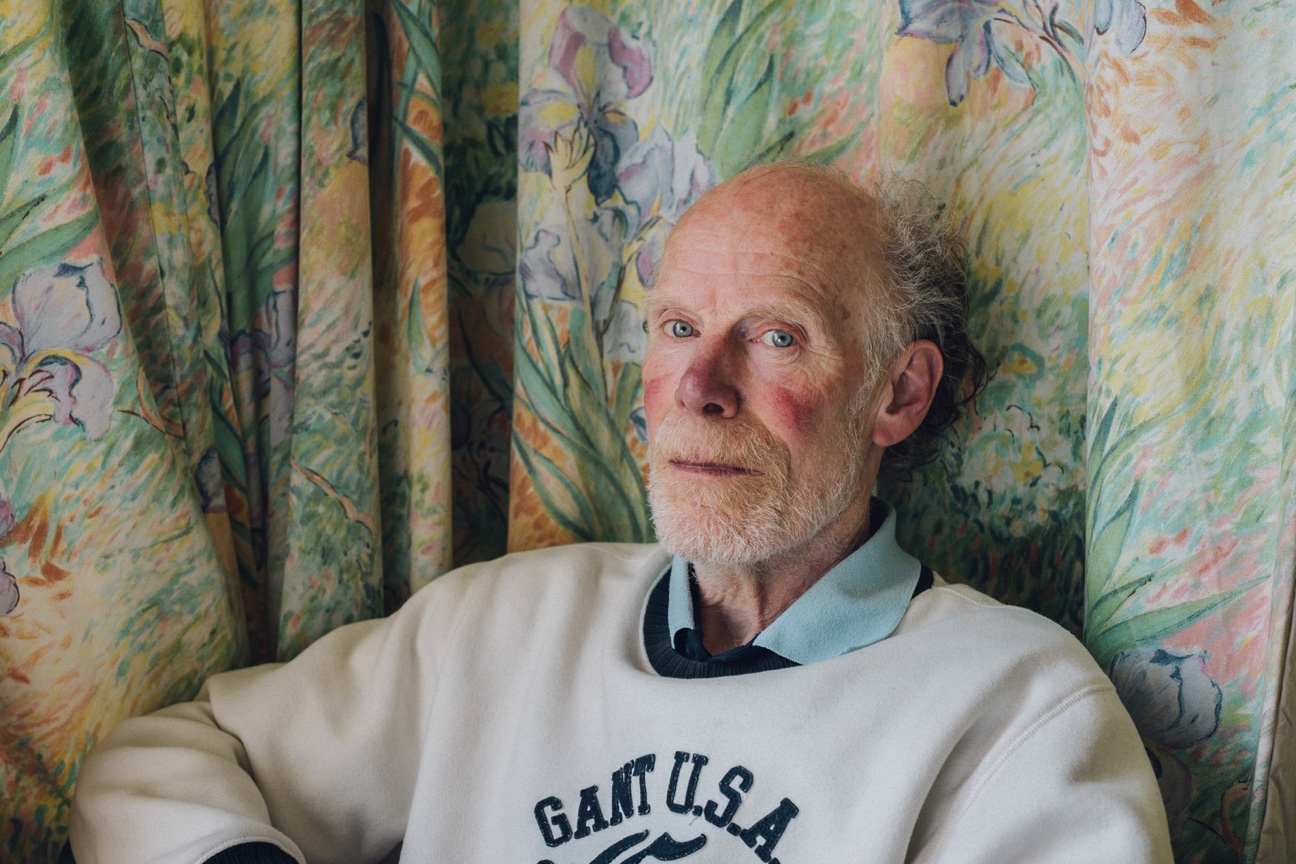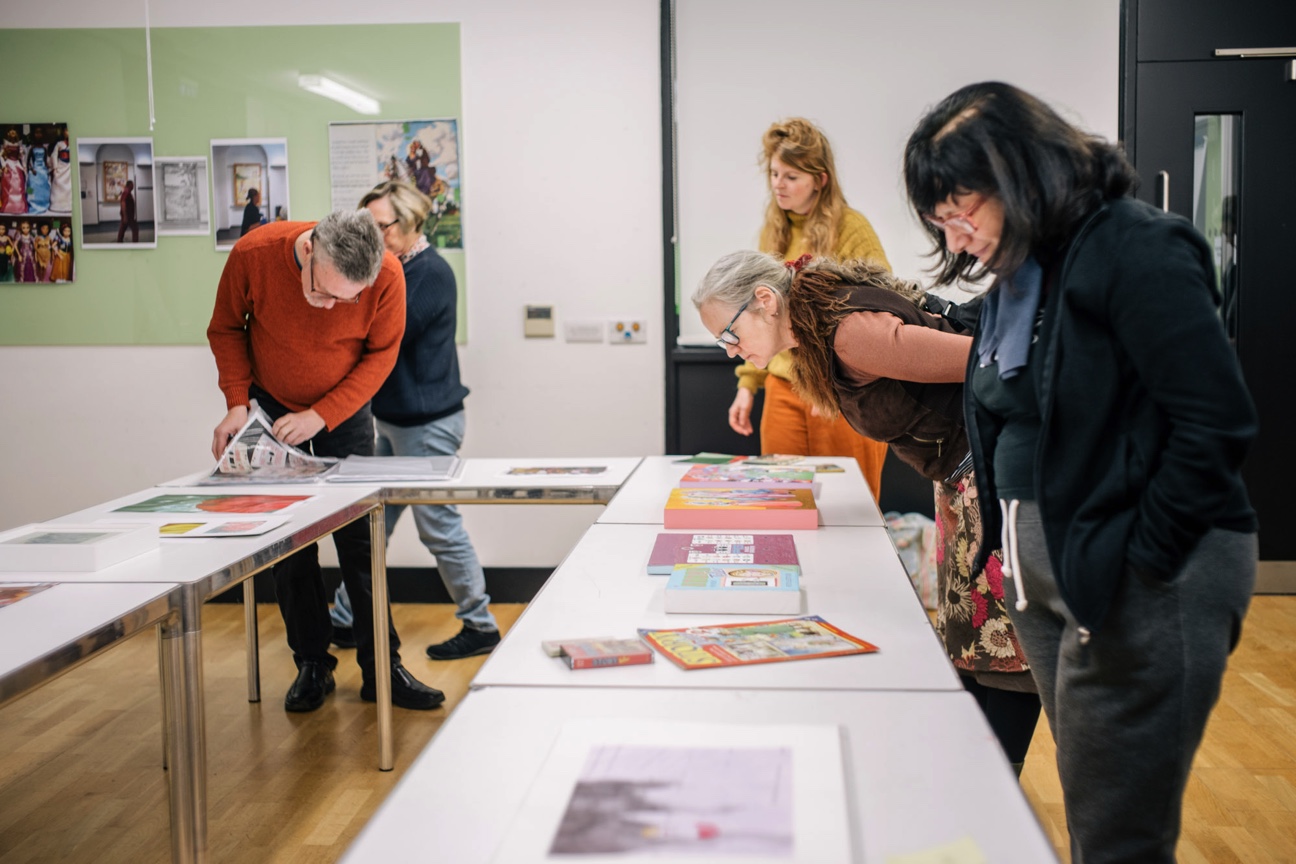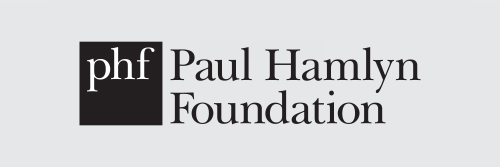

A Spotlight On… Daniel Regan
This month our Head of Engagement, Liz Wewiora chats to artist and facilitator Daniel Regan, about the interconnections between arts, health and socially engaged practice. The pair also discuss notions of wellbeing during a time when our physical engagement is restricted, and the challenges but also potential of creating digital social spaces.
Liz: Thanks for agreeing to chat to me for the socially engaged photography network Daniel. I wondered if you could start by telling me a little bit more about your practice, or as I see it the various strands of work that make up your creative practice?
Daniel: Within my own practice, the reason why I got into socially engaged projects is probably because of my own lived experience of mental health difficulties. And so I wanted to try and connect and support people to try and understand how they can use photography to look at their own personal wellbeing, as a tool for empowerment and a sense of agency. I started by facilitating general workshops around photography as a way of doing this, and over the years they have become a lot more focused on specific projects.
For example I’ve just finished a project with Historic Royal Palaces, which was facilitating a project for men with lived experience of mental health difficulty in relation to the exhibition which is now well, in the current situation not open to the public, at Kew Palace which focuses on King George III, who was known as the ‘mad king’. That was a project working with men with photography and creative writing, and using my own experience to inform the discussions and the content that came out of this. The group contributions in fact then formed part of the Kew Palace exhibition, so alongside the curatorial labels of the objects (some of them are paintings some of them are musical instruments that George used), are the contemporary voices of men with lived experience around mental health.
A lot of my work, really, is about empowering people to be heard when in other situations their voices aren’t as seen as important or valid, or perhaps they simply don’t have the confidence to express them.
Liz: So does this approach to working then also reflect in your practice as a commissioner?
In terms of commissioning work, particularly within a healthcare environment we look at different ways of commissioning all different types of work including photography as ways to explore people’s health and wellbeing, and in varying degrees as well. It might be that it’s a lighter way of exploring a particular theme that might not be so dense emotionally. Sometimes it might be that we commission an artist to run a photography course that is tied in to a therapeutic element in partnership with an art therapist of psychotherapist, where those involved identify a particular health difficulty. These projects aim to equip those involved with the skills to carry out certain photographic techniques, but its really more about the process of the work that is made and the conversations that come out of the making, rather than the final results of what is made. That for me is what is really important about socially engaged projects, that focus on the value of process, particularly if you are working with people who don’t have the skill set or haven’t trained in a particular way of working.
The third strand of my practice is running the Arts and Health Hub network. It’s really about creating a space where other artists can feel supported, particularly within the arts and health sector. I am someone who is very much a non-competitive artist, well I am not a non-competitive person in general, and for me it is about creating a place where people feel open and free to ask questions to other artists, discuss best practice through peer-to-peer support. There are lots of artists in that group that are also using their lived experience or who want to use their lived experience to facilitate ideas and connect with particular communities. So we as a network support each other to learn about ways to work with people, and also consider the ethics and morals of working with particular communities.
Liz:You talk about, how through your own work, well actually through all strands of your practice, about the interconnection between arts and health but specifically in this socially engaged approach to bring out these conversations in arts and wellbeing in your projects. Socially engaged practice is a loaded and sometimes quite messy and hugely diverse term. What does the term ‘socially engaged’ practice mean personally to you?
Well if we come back to the first one, ‘social’ then for me it is fundamentally about engaging with people. My socially engaged practice is very much about people and stories as opposed to an artist who might make work about place. My work isn’t really rooted in place, it is really rooted in this very ephemeral space, that people’s minds inhabit. It’s our identity, our values, our past, our present and our future. It’s really getting people to understand who they are, and I think it comes back to my own use of photography. Photography for me enables this sense of narrative in my life story. As a person who had difficulties when I was growing up to create a sense of narrative through different events, photographs became the thing that enabled me to solidify the things that have happened in my life.
So in my socially engaged work I want people to use photography as a way to process either things that have happened or are currently happening to them. Sometimes that is in a heavily therapeutic way, working through a particular issue. There can be difficulties in clinical support in helping people understand what is happening to them, particularly around triggers and safeguarding so can photography can be an alternative way to explore this. Other times it is about using photography and arts as a daily practice as a way to simply unpick your thoughts, to process things and create a sense of narrative and storytelling.
It is very much about connecting people and opening up this skill that is in fact already innate in people to explore their own narrative, but perhaps they haven’t been able to look at it before from this perspective.
Liz: So you mention photography as this positive tool for translating our own narrative or reflecting upon our own journey and identity. Do you see photography then as a particularly strong medium to work through these ideas, perhaps over other mediums? What is it about photography that works so well with socially engaged arts practice?
I mean there is the simplicity of photography being quite an accessible form now, which can definitely offer perks over other mediums, but also for me as an individual one of the reasons I started photographing was because I really struggled to find the words that represented what I was feeling or going through. There’s an element of less vulnerability or less risk in using images to represent feelings. Creating images, particularly within a narrative and sharing them enables people to feel less vulnerable to expose difficult experiences that they are having. Using an image is a really good stimulus, a good starting point because you can start to look at the visual cues that represent certain emotions that culturally we all relate to – the aesthetics we all relate to such as nostalgia or colours that relate to certain feelings.
Also in terms of other mediums, such as painting, they are a lot more loaded in terms of skills, people might be quite afraid to pick up a paint brush where as we are less scared to pick up a camera or smartphone, as photography is so engrained in our everyday culture now.
Liz: I know you mentioned the recent project with Historical Royal Palaces which sounded like a really rich opportunity to engage with a group of individuals on an in-depth collaboration, but I was wondering what other projects you might be currently working on, particularly in this current climate where practitioners, as well as society at large are really having to challenge their understanding of social engagement as we are asked to physically distance ourselves from one another. I know its something I have been considering with the group I have a long-term collaboration with, but also with all of the current socially engaged residencies we deliver with artists and community groups at Open Eye Gallery.
I have been talking to people about this since the lockdown, particularly with a few different clients. Looking at creating resources for people in this time where it’s difficult to have a socially engaged practice. Whether that’s developing resource packs for online creative activities for young people to explore how they’re feeling, or online versions workshops that were going to happen but have now been suspended due to coronavirus.
Liz:
Well exactly, and this was the conversation I was having yesterday, it all sounds very well and good to do these resources but is it just another thing that is being re-invented? It’s about looking at what is already out there, so like you say, where is there is scope for partnership and collaboration on this?
This isn’t to say online engagement can’t have impact but perhaps the in-depth of engagement of physical group discussions and that building of relationships needs to be reconsidered for online. For one of my projects I have been working with the Barbican to develop broad photography briefs to send out to their existing community groups, older and younger groups.
We were discussing setting quite simple briefs exploring the everyday, so what does the everyday look like now, trying to re-frame what that looks like as the ‘new normal’. Their daily life may have looked like hanging out in the park but now exploring things that would of often been unnoticed. What are the things, that if you become hyper aware, you realize are quite beautiful at home? What do they mean to you? So I definitely thing there are meaningful ways of creating socially engaged projects in this time of isolation, we just need to be wary of not creating too many things for people to absorb.
In terms of peer-peer support normally I’d be running monthly physical sessions with artists and I’d been hesitant to run them with the same structure and framework online (via Zoom). They have been much more unstructured and are more like general check-ins now, discussing how people are generally getting on, and any challenges they have been facing. This has actually proven really fruitful and one of our members has been discussing a new ‘lockdown residency’ programme, which is dedicated very much to the idea of the process of making during this time. We need to not be focusing on outputs right now, but exploring very low-pressure activities, which can help us frame our own wellbeing and how we are all coping as a society right now.

